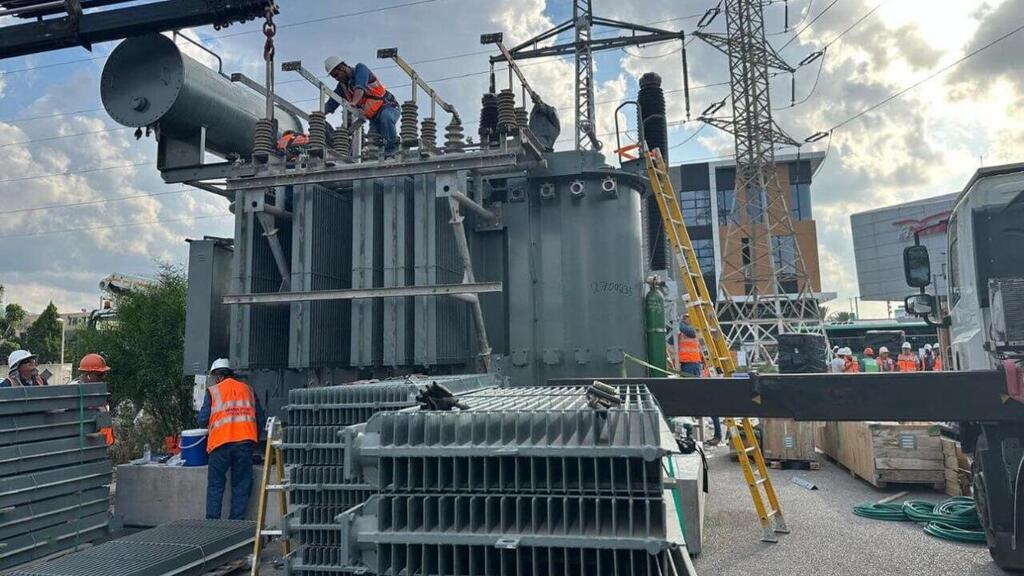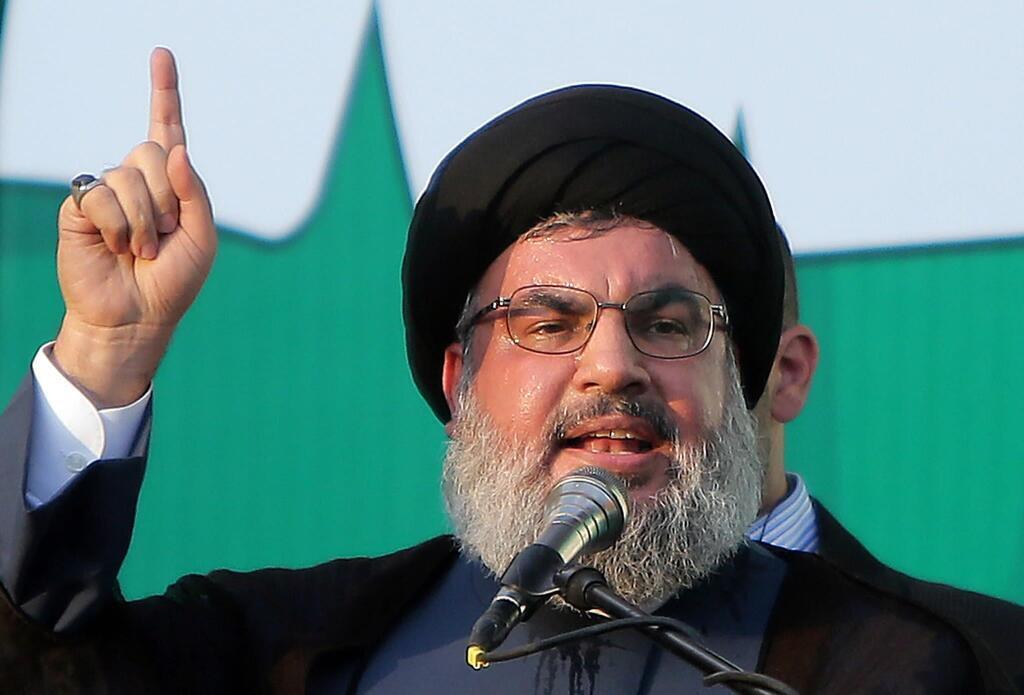Getting your Trinity Audio player ready...
The Israel Electric Company on Tuesday, began a drill simulating power outages caused by Hezbollah rockets, to prepare for a possible war with the Iran-backed terror group.
The exercise will last about a week and a half will include restoring power to the grid (changing the voltage of electric current) during wartime, repairing damage to power generation sites, handling hazardous materials incidents, aerial drills, and more.
The largest source of electricity production in Israel, about 70%, is natural gas, followed by coal, diesel, fuel oil, and renewable energies. Normally, diesel or fuel oil is not used, but in emergencies, when gas rigs are shut down due to the level of risk and Israel loses its main energy source, the country has a stockpile of diesel that can be used.
"Gas rigs are sensitive, and when a rig is active, it can turn into a ticking bomb," said Sami Turgeman, Chairman of Noga, Israel's Independent Power Management company. "If a precise missile hits it, we will certainly lose the rig and possibly the gas reservoir as well. Therefore, the immediate action taken by the Israeli government would be to stop gas production and empty the rigs, rendering the pipeline irrelevant. If a missile hits the pipeline? We can call a plumber."
Israel's emergency stockpiles, which allow power plants to switch from gas to diesel for electricity production, must be imported. "Today, there isn't a single tank in the country that isn't full," says Turgeman. The Ministry of Energy explains: "The electricity sector has been prepared in advance to produce electricity using alternative fuels, ensuring the purchase and storage of strategic reserves, as well as backup equipment including generators and substations. Due to the sensitivity of the issue and to maintain energy security, the quantities of the various reserves cannot be detailed."
Almost everyone agrees that in a state of war, there will be malfunctions and disruptions in the electricity supply. It is likely that more circles of the civilian population will be evacuated if the conflict in the north expands, and even though the IEC has the capability to fix malfunctions, no one expects them to do so if the danger is too great.
"A significant portion of our power plants are located in very remote areas and have active defense systems," Turgeman said. "Our production is not necessarily in the north. Although the IEC has fortified its sites, we should assume that there will be damage causing local and regional power outages. How long will it take to restore power? It could take hours, a day, or two for any affected area. We are preparing for this."
Almost a month ago, the CEO of Noga, Shaul Goldstein, warned that "our situation is not good," estimating that Hezbollah could easily take down the power grid. His comments caused panic. Haim Yellin, an advisor to the solar energy company Doral and a member of Kibbutz Be'eri, explains: "They were angry at Goldstein because he told the truth. You don't prepare a sector for an emergency during a war. You prepare it beforehand. Create green islands, and neighborhoods with energy storage. But there is no storage in Israel because there is no regulation. Take, for example, Kibbutz Dafna in the north, which can store electricity using solar panels or agro-solar. But there is no regulation. Why? Just because. This was one of the proposals I requested in the recovery program. Think about a kibbutz or moshav being able to store energy. In an emergency, it would be enough."
Meir Spiegler, CEO of the IEC disagreed. "Fearmongering is a cover-up and dodging responsibility. It throws the citizens into a panic. We didn't wake up today or a month ago. We woke up in terror like most Israeli citizens on October 7. And since then, we have been on the ground. We are currently in a war period, with the focus being in the north for the last eight months. To the best of my knowledge, there is no blackout there."
The IEC said that they have prepared emergency equipment and substations at a cost of about $193 million. "We are operating massive defense on our stations, called Windbreaker. The Electricity Authority is supposed to approve the equipment, but we took the responsibility and the risk," says Spiegler, who has already accused the Budget Department at the Ministry of Finance, which he claims did not approve the purchase of mobile substations.




